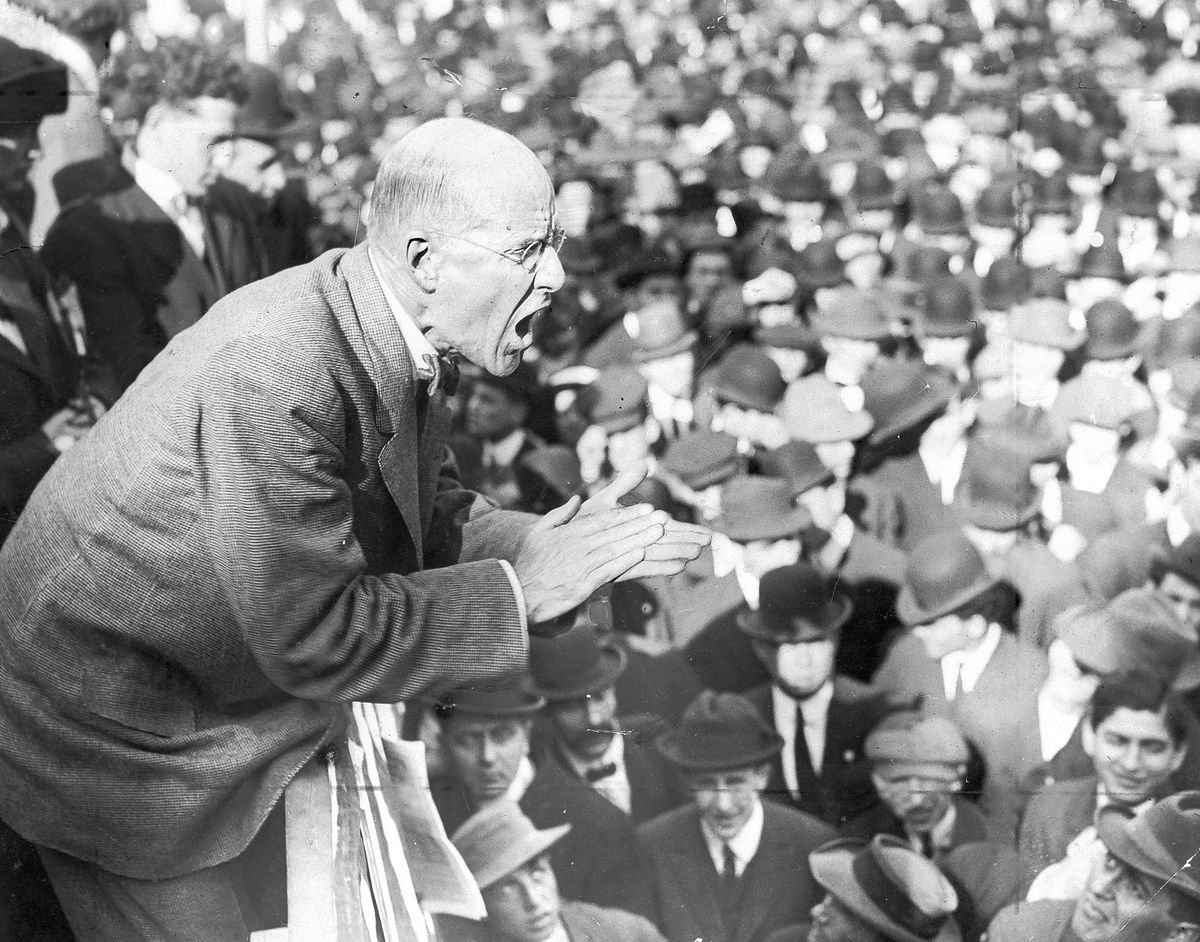
In the late 19th century, a young man from Terre Haute, Indiana, stood at the crossroads of destiny. His name was Eugene Victor Debs, and he would go on to become one of the most powerful voices for the working class in American history. His life was not one of wealth or privilege, but of struggle, defiance, and an unshakable belief in justice.
The Birth of a Fighter (1855-1893)
Born in 1855, Debs grew up in a simple household, learning the value of hard work from his parents. At just 14 years old, he left school to work on the railroads, shoveling coal into the fiery belly of locomotives. But as he toiled, he saw something deeply troubling—workers were treated as disposable, their voices silenced, their families left in despair when tragedy struck.
Debs refused to accept this injustice. He believed that workers deserved dignity, fair wages, and safe conditions. In 1893, he took a bold step, founding the American Railway Union (ARU)—one of the first industrial unions in the nation. This was not just an organization; it was a revolution.
The Pullman Strike & the Battle Against Power (1894)
In 1894, the workers of the Pullman Company—which built luxury railcars—were suffering. Their wages were cut, but their rents in company-owned housing remained the same. Desperation turned to anger, and the ARU, under Debs’ fearless leadership, led the Pullman Strike.
The strike paralyzed the nation’s railroads, sending shockwaves through the corridors of power. But the government, siding with big business, sent federal troops to crush the movement. Violence erupted. Strikers were killed. And Eugene Debs—the man who dared to stand up for the working class—was arrested.
A Voice That Couldn’t Be Silenced (1895-1900)
In 1895, Debs emerged from prison not as a broken man, but as a warrior with an even greater purpose. He had seen firsthand how the system was rigged against the poor. He vowed to fight, not just for railway workers, but for every oppressed soul in America.
He embraced Socialism, believing that a system built on fairness, equality, and shared prosperity was the only answer. And so, in 1900, he ran for President of the United States under the Socialist Party. He did not expect to win—but he knew that every speech, every rally, every word would plant seeds of change.
A Campaign Like No Other (1900-1920)
Debs ran for president five times—in 1900, 1904, 1908, 1912, and 1920—and with each campaign, his message spread further. He spoke with fire in his heart and clarity in his words, urging workers to rise, to dream, to demand their rights. Even those who disagreed with him could not deny his brilliance, his passion, his undeniable power as an orator.
His influence reached beyond the Socialist Party—Democrats and Republicans were forced to listen. His ideas on workers’ rights, government regulation, and civil liberties shaped future policies and inspired countless leaders.
The Prison Campaign (1920)
Then came World War I, a war that Debs believed was fought for the interests of the rich, while the poor paid the price with their lives. He spoke out against it—and for that, the U.S. government labeled him a traitor. In 1918, he was sentenced to ten years in federal prison for giving an anti-war speech.
But even behind bars, Debs’ voice could not be silenced. In 1920, from his prison cell in Atlanta, he ran for president once again. And in an unprecedented moment in history, nearly one million Americans cast their vote for a man in prison.
The Legacy of a Giant (1926 & Beyond)
In 1921, President Warren G. Harding bowed to public pressure and released Debs from prison. Though free, his health was failing. But even in his final years, he never stopped fighting for justice. When he passed away in 1926, America lost a hero—but his ideas lived on.
Today, Eugene Debs is remembered as more than a politician. He was a leader who stood up when it was dangerous to do so. A man who lost elections but won hearts. A warrior whose words shook the foundations of power and inspired generations to keep fighting for fairness, justice, and dignity.
He once said, “While there is a lower class, I am in it; while there is a criminal element, I am of it; while there is a soul in prison, I am not free.”
That is the legacy of Eugene Debs—a man who never stopped believing in the power of the people.